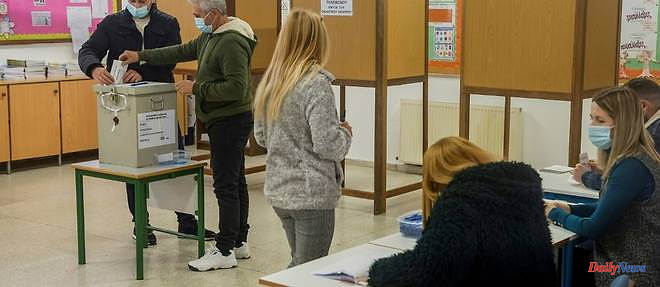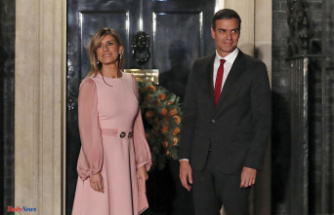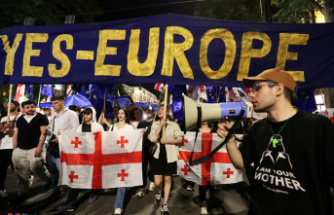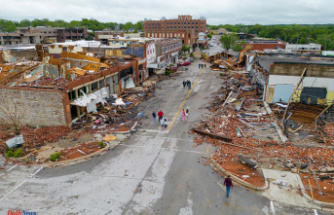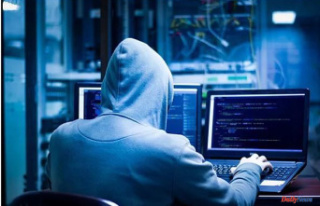Cypriots cast their ballots in a close three-candidate presidential ballot on Sunday, with the electorate concerned about corruption scandals and runaway inflation on the island divided for nearly half a century.
In the center of Nicosia, voters marched in dribs and drabs on Sunday morning to slip their ballots into the ballot box at a polling station set up in the primary school of Agios Antonios.
"Some things have to change radically in my opinion regarding the Cyprus problem (the division of the island, editor's note) and the economy," said Maria Christodoulou, a 45-year-old teacher, after voting.
At 10 a.m. local time (0800 GMT), the turnout was 11.7%, an increase of 1.2% compared to the last presidential election (2018), according to official figures.
Fourteen candidates, including three in the lead, are standing against more than 561,000 voters in the southern part of the island to succeed right-wing president Nicos Anastasiades.
According to the polls, none would be able to win an absolute majority. A second round would then be organized on February 12.
Open at 7 a.m. (5 a.m. GMT), the 1,113 polling stations close at 6 p.m. (4 p.m. GMT) with a one-hour break in the middle of the day.
"Voting began without hindrance," returning officer Costas Constantinou said.
A member of the European Union since 2004, Cyprus has been divided since the Turkish invasion in 1974 of the northern third of the island, in response to a coup d'etat by Cypriot-Greek nationalists wishing to attach the country to Greece.
The Republic of Cyprus exercises authority only over the southern part of the [Greek Cypriot] island, separated by the UN-controlled Green Line, from the self-proclaimed and recognized Turkish Republic of Northern Cyprus (TRNC) only by Turkey, where the Turkish-Cypriots live.
Nikos Christodoulides, who presents himself as "independent", is given the favourite. This 49-year-old diplomat, supported by centrist parties, was President Anastasiades' foreign minister between 2018 and 2022.
His main opponents are Andreas Mavroyiannis, a 66-year-old diplomat backed by the communist party Akel, former chief negotiator in the reunification talks (2013-2022), as well as Averof Neofytou, 61, leader of the ruling conservative party, Disy .
Hubert Faustmann, professor of politics and history at the University of Nicosia, speaks of a "strange" ballot where "the three favorites are linked to the current president", who at 76 is completing two five-year terms.
First challenge for the new leader: inflation, which reached 10.9% in 2022. Despite a slowdown in January, to 7.1%, the rise in prices, in particular of energy and food, remains in head of concern and the country experienced a general strike at the end of January.
The fight against corruption also dominated the debate, especially after the scandal of the "golden passports", a device which had to be canceled due to allegations of corruption, tarnishing the image of the government of Mr. Anastasiades.
"Corruption is at the heart of the debate, like the economy and daily life. The Cyprus problem [the division] is a secondary subject," said Giorgos Kentas, associate professor of international relations at the University of Nicosia.
Another sensitive subject on this island in the eastern Mediterranean, the influx of migrants, for which the candidates have promised to act. Authorities say 6% of the 915,000 people living in the south of the island are asylum seekers.
According to EU figures, Cyprus has the second highest rate of first-time asylum seekers relative to its population in the European Union, behind Austria.
Nicosia accuses Turkey of orchestrating a large part of the arrival of refugees from Syria and migrants from sub-Saharan Africa via the Green Line.
The future president will rightly be called upon to relaunch the talks on reunification, which have stalled since 2017.
On this issue, Mr. Christodoulides is considered a "hawk" and wants the EU to isolate Turkey.
Mr. Neofytou is seen as a pragmatist, while Mr. Mavroyiannis has softened his stance to agree with the Akel party line.
The UN-sponsored diplomatic process has stumbled in particular on the presence of 40,000 Turkish soldiers in the TRNC.
05/02/2023 12:25:34 - Nicosia (AFP) - © 2023 AFP

